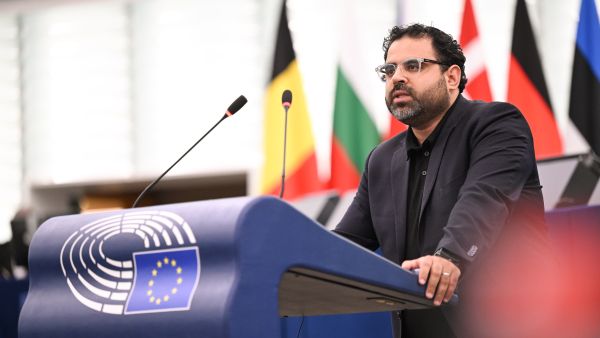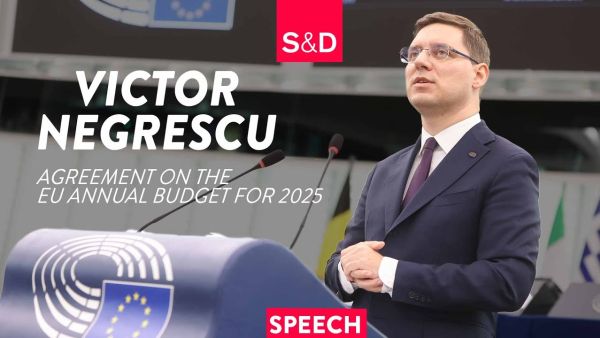As the current long-term budget nears its end, the European Parliament is laying down its demands for a more ambitious financial framework to tackle mounting challenges.
The European Union, like its individual Member States, must secure the necessary funds to fulfil its promises to its citizens. Without adequate financial backing, these commitments risk becoming mere aspirations. This is precisely why the EU operates with a Multiannual Financial Framework (MFF) – the Union’s long-term budget. The existing MFF, spanning from 2021 to 2027, was agreed upon in 2020 by the European Commission, the European Parliament, and the Member States within the Council. Though only six years have passed, the global landscape has shifted dramatically, underscoring the urgent need for a sufficiently resourced MFF beyond 2027. The time for discussion and negotiation is now.
The first formal step in this process occurred today in Strasbourg, where the plenary session of the European Parliament adopted a report, which I co-authored within the Parliament’s committee on budgets. This report outlines the key priorities we wish to see addressed in the legislative proposal for the post-2027 MFF. The European Commission is expected to present this crucial proposal later this summer. Its approval hinges on the European Parliament’s consent, which will follow negotiations with the Member States in the Council, based on the Commission’s initial document. The aim is to reach an agreement by the end of 2026 at the latest. The Parliament’s adoption of this report today serves as a clear message, not only to the Commission but also to the Member States, regarding the Parliament’s anticipated positions in the upcoming negotiations.
But why advocate for a more ambitious long-term budget after 2027 compared to the current one? Our increased ambition stems from the growing number and scale of challenges confronting our citizens, challenges that individual Member States cannot effectively address in isolation. These include the resurgence of war on our continent, the ongoing climate emergency manifesting in devastating wildfires and severe floods, a pervasive sense of insecurity coupled with the worsening economic and social conditions faced by many Europeans, the looming threat of trade wars originating from third countries alongside the competitiveness issues plaguing our industries, and the pressing need for humanitarian aid globally, particularly as the United States signals a potential withdrawal from the international stage and the rules-based order. These are just some of the critical issues demanding our attention and for which finding solutions will be impossible without a significant increase in funding for the MFF after 2027.
The period of the current MFF – 2021 to 2027 – has already tested our citizens and businesses with the profound shocks of the health and economic repercussions of the COVID-19 pandemic, the soaring prices of energy, and Russia’s illegal war of aggression and its far-reaching impact on our security. Unlike 2020, when few could have foreseen these events, we now possess a clearer understanding of the challenges ahead. We must fundamentally rethink how we allocate our resources and adopt a more strategic approach to spending.
We urge the Member States, the Commission, and all other political stakeholders to place people and their expectations at the core of the next MFF. This is the only path towards achieving tangible and visible results, thereby convincing citizens that the European project genuinely serves their interests.
In this spirit, we, the Socialists and Democrats in the European Parliament, are sending a strong signal to the Commission and the Member States: approximately 20 million children within the Union are at risk of poverty and social exclusion. This is an unacceptable situation, and we demand a dedicated budget within the European Social Fund+ to bolster the European Child Guarantee as a central pillar of the EU’s anti-poverty strategy.
The post-2027 MFF should incorporate two specific instruments: one dedicated to ensuring solidarity in the face of natural disasters, and another for general crisis response. Cohesion policy is, and must remain, an investment instrument aimed at reducing economic and social disparities among regions and communities within our Union. Consequently, we must safeguard cohesion policy from being depleted by constantly emerging crises and refrain from repeatedly using it as a last resort when the EU urgently needs funds to address emergencies.
Furthermore, cohesion policy must remain under the stewardship of regional and local authorities, who possess the most intimate understanding of their residents’ needs.
The EU must not overlook its farmers. This sector is particularly vulnerable to inflationary shocks, which significantly erode farmers’ purchasing power. Therefore, we call for adequate and predictable funding for the Common Agricultural Policy in the next MFF.
Turning to internal challenges within the EU, we must also acknowledge the threats emanating from beyond our borders. Defence and security should occupy a prominent position in the Union’s next long-term budget after 2027. However, this must not necessitate cuts or the redirection of funding from crucial social policies. The solution to this apparent dilemma – security versus social policy – lies in establishing a new system of genuine own resources, a measure that the S&D Group has long advocated for.
This will not only ensure the sustainable repayment of joint EU debt but will also guarantee Europe’s capacity to respond effectively to crises and address the needs of its people. The S&D Group also insists that new joint borrowing should be available to ensure the Union has sufficient resources to provide a collective response to the multitude of challenges we face, including defence, and that this time the Parliament fully exercises its role in this process.
Finally, and crucially, respect for the rule of law must be an absolute prerequisite for accessing European funding, both under the current and the future EU long-term budget.
Carla Tavares is a Portuguese Member of the European Parliament from the S&D Group and co-negotiator on the next EU pluriannual budget-post 2027 in the EP’s Committee on budgets.












